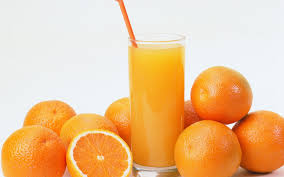
A recent US study showed an increased risk of melanoma for those who drank more than one glass of orange juice a day. Sounds ominous for those of us striving to reach the recommended daily intake of fruit and vegetables. doesn’t it.
But before you change your daily routine, there are a couple of important points to make about the study.
What was the study for?
The study was run over 30 years and was aimed at identifying if there is a link between citrus fruits and melanoma. The thinking goes something like this:
Citrus fruits are high in psoralen, a chemical compound known to absorb UV energy. Psoralen is used to treat a range of skin conditions and so a few studies have been done on long term use. Some of these show an increase risk in melanoma and this study was run to try and identify if a link can be made.
What do the results mean?
The results show an increased incidence of melanoma for those eating a lot of citrus fruits. There is some indication that citrus fruits that are higher in psoralen have a higher risk.
The study is well designed and run over a long period of time with over 100,000 participants. So the results tell us to not to eat citrus fruit?
Not exactly.
This study was designed to identify if there was a link between citrus fruit and melanoma. It has provided some really strong evidence that this is the case. However, the study can’t say anything about a causal relationship between the two.
For example, it may well be that those who eat more citrus fruit live in the sunny climate that suits growing such fruit. Meaning there is more fruit and UV exposure available to those people.
The authors rightly acknowledge the role of this study which was to provide evidence to investigate further.
What we are taking out of this
It’s too early to say what impact eating citrus fruit has on melanoma. What we do know is that fruit and vegetables, including citrus fruits, deliver important health benefits which have been validated across many studies.
We also know that UV exposure, especially intermittent UV exposure, is linked to melanoma. This has also been proven by many studies.
So without further evidence, we believe that it remains important to eat a healthy diet including citrus fruits. We also believe that being smart about UV exposure and protecting yourself while out in the sun is essential.
So continue to enjoy your fruit and your outdoor time, just as always be sun smart.
A good write up of the study is here on the NHS website.